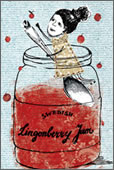When trying to predict what will make us happy in the future, we naturally rely on beliefs we have acquired with experience. Unfortunately these beliefs about the way our emotions operate are frequently misleading.
Experiments have shown that people have a natural tendency to over-generalise beliefs about their emotions to situations where they don’t apply. Psychologists call these belief biases.
Here are four belief biases that people often display when trying to predict how an event will make them feel in the future:
- The contrast effect
People expect that a good experience will be more enjoyable when it follows a bad experience. In fact research on jelly bean tasting shows that the contrast effect can be a complete mirage created by our expectations. The same is true when bad experiences follow good – there is an expectation that the bad experience will then be even worse, although often it’s not. Perhaps this is part of the reason people think Mondays are more depressing than they really are. - More choice is not better
People expect that having more options will make them happier, but often it doesn’t. Research with gourmet jams has found people can be happier, and even better motivated, when they have fewer options to choose from. In some situations, no choice at all may be better than choosing between two options – even when both options are equally enticing. Not convinced? Watch this video of Barry Schwartz. - Adaptation
People often expect that repeated exposure to an experience will lessen the pleasure it gives. Research on ice cream, yoghurt and music showed that most people adapted to the taste, either coming to like it more, or at the very least dislike it less. - Certainty
People expect to feel happier when they have reduced the uncertainty in a situation. Often, though, mystery can increase pleasure.
Fighting the belief biases
The amount that we are swayed by each of these biases depends on how much we believe in them. So, just reading, remembering and believing (!) this post should allow you fight back against the belief biases, helping you to make decisions that will increase your future happiness.
[Image credit: bubbo-tubbo]

